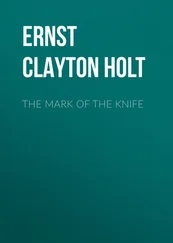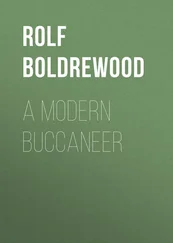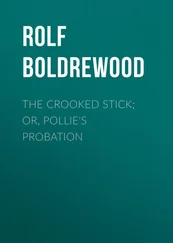Rolf Boldrewood - War to the Knife
Здесь есть возможность читать онлайн «Rolf Boldrewood - War to the Knife» — ознакомительный отрывок электронной книги совершенно бесплатно, а после прочтения отрывка купить полную версию. В некоторых случаях можно слушать аудио, скачать через торрент в формате fb2 и присутствует краткое содержание. Жанр: foreign_antique, foreign_prose, на английском языке. Описание произведения, (предисловие) а так же отзывы посетителей доступны на портале библиотеки ЛибКат.
- Название:War to the Knife
- Автор:
- Жанр:
- Год:неизвестен
- ISBN:нет данных
- Рейтинг книги:4 / 5. Голосов: 1
-
Избранное:Добавить в избранное
- Отзывы:
-
Ваша оценка:
- 80
- 1
- 2
- 3
- 4
- 5
War to the Knife: краткое содержание, описание и аннотация
Предлагаем к чтению аннотацию, описание, краткое содержание или предисловие (зависит от того, что написал сам автор книги «War to the Knife»). Если вы не нашли необходимую информацию о книге — напишите в комментариях, мы постараемся отыскать её.
War to the Knife — читать онлайн ознакомительный отрывок
Ниже представлен текст книги, разбитый по страницам. Система сохранения места последней прочитанной страницы, позволяет с удобством читать онлайн бесплатно книгу «War to the Knife», без необходимости каждый раз заново искать на чём Вы остановились. Поставьте закладку, и сможете в любой момент перейти на страницу, на которой закончили чтение.
Интервал:
Закладка:
They had pulled up for lunch in the meadow, deep-swarded and thick with the clovers white and purple, mingled with the tiny fodder plants which nestle around a ruin in green England. The party was full of exclamations.
"What a darling old church! – thousands of years old it must be," said one of the Miss Wensleydales. "Now, can any one tell me whether it is a Norman or a Saxon one?"
"Oh, Norman, surely!" was the verdict of several feminine voices, all at once.
"I am not quite certain," said Lady Roxburgh; "I always intended to look it up. What do you say, Miss Tollemache? You know more about these matters than we do."
"Oh, I don't pretend to any knowledge of architecture. A grand old ruin like this is such a thing of beauty that it seems a pity to pick it to pieces. That south door with its round arches looks rather Saxon. What does Sir Roland think? It's not far from Massinger, is it?"
"I used to know it well in my boyhood," replied that gentleman, who, truth to tell, had been waiting to be referred to. "Miss Tollemache is right; you will find its history in the Domesday Book. The manor was held by the secular canons of St. Wereburgh till the Conqueror gave it to Hugh Lupus, who granted it to the Benedictine monks."
"And was it an abbey church?" asked Miss Branksome, who may or may not have divined Sir Roland's special knowledge of church history.
"Certainly," he replied; "all the authorities are distinct on the point. The manor was held under the abbots by a family of the same name, so it must have belonged to the original Saxon stock."
"And why did they not keep it?" asked Lady Roxburgh. "Really, this is most interesting."
"A lady in the case," answered Sir Roland. "Alice de Sotowiche conveyed it away by her marriage with Robert de Maurepas. What the Normans did not get by the sword they seem to have acquired by matrimony. It did not go out of the family, though, till the time of Edward the First. These De Maurepases battled for their manorial rights, too, which included fishing in the Welland, always providing that sturgeon went to the overlord."
"I always knew it was a dear old place," said Lady Roxburgh, "but now it seems doubly interesting. I must get up this history business for future use, and Miss Branksome shall give a little lecture about it next time we have a picnic."
"Thanks awfully, my dear Lady Roxburgh," said that young lady, "but I never could learn anything by heart in my life. I don't mind writing it down, though, from Sir Roland's notes, so that you can have it printed for private circulation at breakfast-time on picnic days."
"I think we might manage a county historical society," continued her ladyship. "It would be a grand idea for house-parties – only now it must be lunch-time. I see they have been unpacking. We must verify these quatrefoils, chevrons, and things afterwards."
They lunched under the mouldering walls, picturing a long-past day when, issuing forth from the courtyard of the neighbouring castle, had ridden knight and squire and lady fayre, attended by falconers and woodsmen, with hawk on wrist and hound in leash.
"What glorious times they must have had of it!" said Miss Tollemache. "I should like to have lived then. Life was more direct and sincere than in these artificial days."
"If we could only have seen the people as they really were," he replied, "'in their habit as they lived,' mental or otherwise, it would be such splendid opera business, would it not? But they must have been awfully dull between times. Hardly any books, no cigars till later on; war and the chase their only recreations."
"Noble occupations both," said Miss Tollemache, with an air of conviction; "they left little room for the frivolous indolence of these latter days."
"Perhaps so," assented her companion. "You had either to knock people on the head or undergo the operation yourself. Then, mark the opposite side of the shield. In that very castle – while the gay troop was riding out with pennons flying – the feudal enemy or 'misproud' retainer was probably lying in the dungeon ( they had one there, Orme says) after an imprisonment of years."
The gathering was a pronounced success. The ruin provided subjects for unlimited conversation as well as occasions for heroic daring in the matter of climbing. The lunch was perfect in its way; the ensuing walks and talks all that could be wished.
And when, after, as one of the young people declared, the "truly excellent – really delicious day" came so near to its close that the horses were brought up, Miss Branksome playfully suggested that she and Miss Tollemache should change seats, as she wished to take a lesson from the opposition charioteer in driving, and when, after a moment's playful contest, the fair enslaver was placed on the seat beside him, Sir Roland's cup of happiness was full.
"Let Fate do her worst;
There are moments of joy,
Bright dreams of the past,
Which she cannot destroy" —
must have been written by the poet, he felt assured, with that wondrous instinctive insight into the inmost soul of him, and all true lovers, which stamps the heaven-born singer.
Then the drive back to Roxburgh Hall, where they were to reassemble for the impromptu dance! The horses, home-returning, pulled just sufficiently to enable the box passenger to appreciate the strong arm and steady hand of her companion; and when, after an hour, the lamps were lit and the star-spangled night appeared odorous with the scents of early spring, the girl's low voice and musical laugh seemed the appropriate song-speech for which the star-clustered night formed fitting hour and circumstance.
Roland Massinger in that eve of delicious companionship abandoned himself to hope and fantasy. His fair companion had been so far acted upon by her environment, that she had permitted speculative allusions to the recondite problems of the day; to the deeper aims of life – subjects in which she evinced an interest truly exceptional in a girl of such acknowledged social distinction; while he, drawn on by the thought of possible companionship with so rarely-gifted a being, abandoned his usual practical and chiefly negative outlook upon the world, acknowledging the attraction of self-sacrifice and philanthropic crusade. His mental vision appeared to have received an illuminating expansion, and as those low, earnest, but melodious tones made music in his ear, emanating from the fair lips so closely inclined towards his own, he felt almost moved to devote his future energies, means, lands, and life to the amelioration of the race – to the grand aims of that altruistic federation of which, it must be confessed, that he had been a formal, if not indifferent, professor. If only he might persuade this "one sweet spirit to be his minister"! Then, how cheerfully would he fare forth through whatever lands or seas she might appoint.
But that fatal if !
Why should he be privileged to appropriate this glorious creature, redolent of all the loveliness of earth's primal vigour, and yet informed with the lore of the ages, heightening her attractions a hundred – yes, a thousand-fold? Almost he despaired when thinking of his superlative presumption.
Fortunately for the safety of the passengers, who little knew what tremendous issues were oscillating in the brain of their pilot, he mechanically handled the reins in his usual skilled and efficient fashion. Nor, indeed, did the fair comrade, or she would scarcely have emphasized the conventional remark, "Oh, Sir Roland, what a delightful drive we have had! I feel so grateful to you!" as he swung his horses round, and, with practised accuracy, almost grazed the steps at the portico of Roxburgh Hall.
CHAPTER II
Events shaped themselves much after the manner customary since that earliest recorded compromise between soul and sense which mortals throughout all ages have agreed to call Love. Ofttimes such pursuits and contests have been protracted. After the first skirmish of temperaments, war has been declared by Fate, and through wearisome campaigns the rival armies have ravaged cities, so to speak, and assaulted neutral powers before the beleaguered citadel surrendered.
Читать дальшеИнтервал:
Закладка:
Похожие книги на «War to the Knife»
Представляем Вашему вниманию похожие книги на «War to the Knife» списком для выбора. Мы отобрали схожую по названию и смыслу литературу в надежде предоставить читателям больше вариантов отыскать новые, интересные, ещё непрочитанные произведения.
Обсуждение, отзывы о книге «War to the Knife» и просто собственные мнения читателей. Оставьте ваши комментарии, напишите, что Вы думаете о произведении, его смысле или главных героях. Укажите что конкретно понравилось, а что нет, и почему Вы так считаете.












